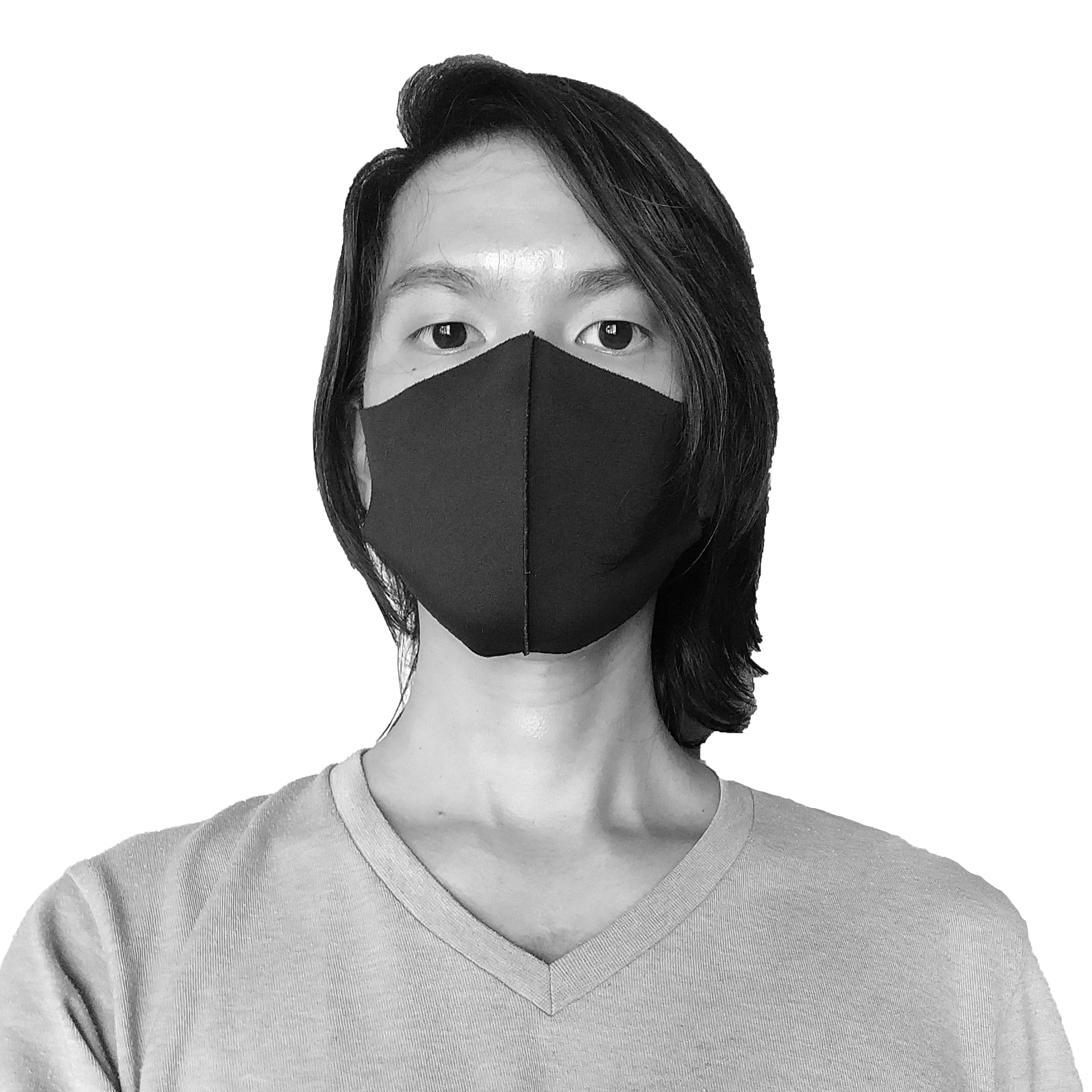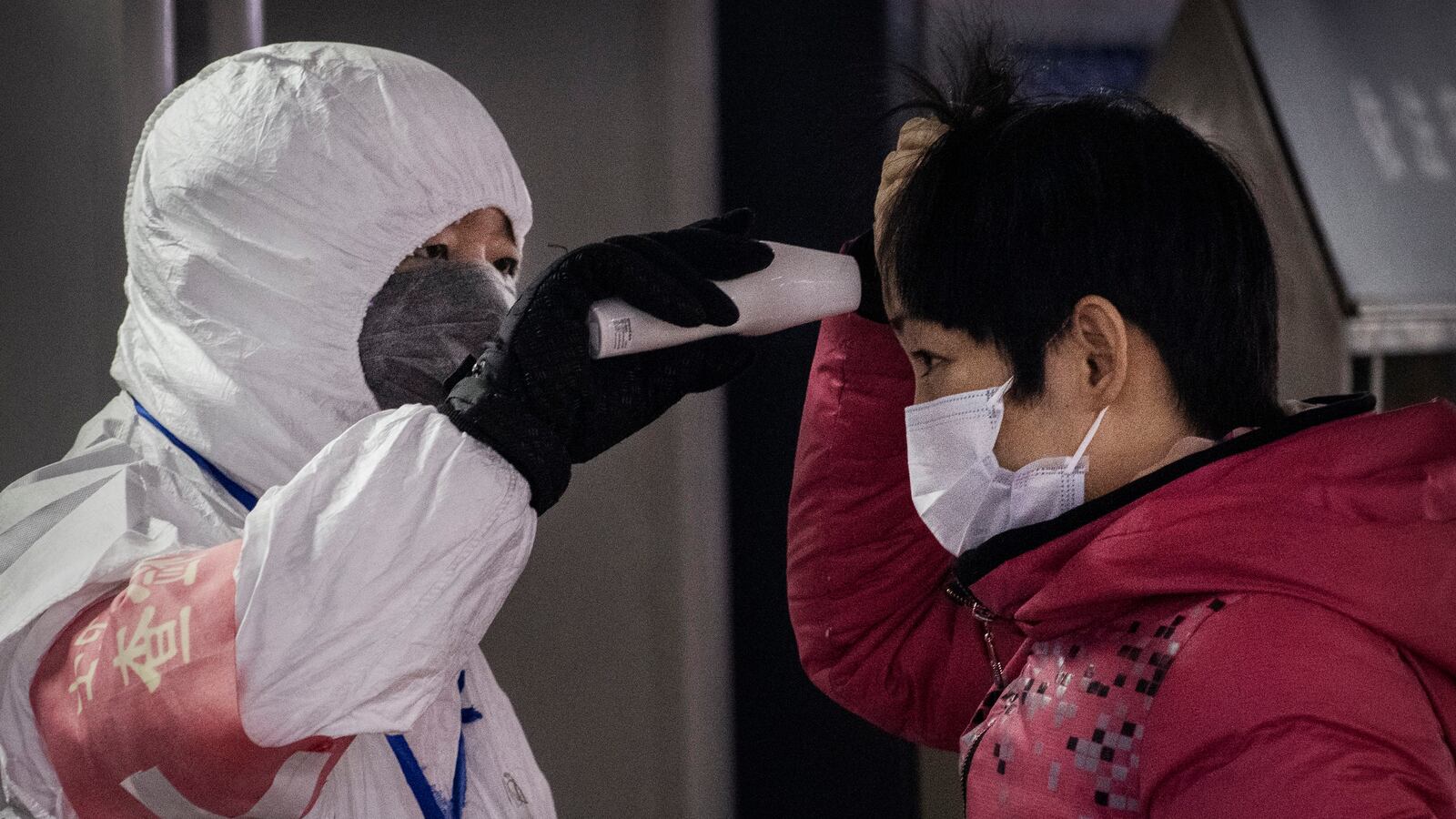As a coronavirus outbreak unfolds in China, Chinese Communist Party leader Xi Jinping convened a meeting with top officials on Saturday to issue orders that he hopes will contain and reverse the epidemic. He called the virus’ spread a “grave situation” and called for a “blocking war” to limit the contagion’s transmission.
Wuhan, where people who worked at a meat and poultry market were the first to become hosts of the coronavirus, has been hit the hardest.
As of a little past midnight on Sunday, 42 people in China have died after being infected with the coronavirus; 38 of them were in Wuhan, the outbreak’s epicenter. More than 1,400 infections have been identified within China’s borders—though doctors in Wuhan have told Chinese press that the actual numbers could be an order of magnitude higher.
Wuhan has a population of 11 million. Like most metropolises, it bleeds into the smaller cities around it. Shutting down the city required a massive mobilization of police and soldiers, who are guarding expressway toll booths, train stations, and other key locations like certain hospitals in the city, some armed with rifles and wearing hazmat suits. To free up manpower, a portion of roads in Hubei, the province with Wuhan as its capital, have been blocked using walls of dirt and large boulders.
Service staff working on high-speed trains that normally stop at Wuhan said the line will be skipping the city’s station for at least a month. This suggests that the quarantine in Hubei province will last for at least that amount of time.
Bus, subway, and ferry services in Wuhan have already been halted. Ride-hailing companies have suspended their services. From Sunday onward, private cars will be barred from roads in the city center. The only way to move around the city is via taxi or special buses arranged by the city government.
And for many people, the only destination is their nearest hospital—or any hospital that hasn’t been overwhelmed.
Medical staff are stretched thin. Most waiting rooms are packed with people who need to be tested for the coronavirus, as well as patients who are already suffering from acute symptoms. Doctors and nurses have been working consecutive shifts for days, with some opting to wear adult diapers so that they can focus on providing medical care.
One doctor that treated patients for the coronavirus has died after becoming infected himself.
Another doctor in Wuhan wrote an open letter to Chinese officials on the message board of state-run publication People’s Daily, calling for an investigation of the Wuhan Health Commission. The doctor said that the commission attempted to cover up the coronavirus outbreak by banning mentions of lung infections in CT scan reports. (The post has been censored.)
In the past couple days, some facilities ran out of protective gear—like goggles, medical face masks, rubber gloves, disposable biohazard coveralls, and shoe coverings—so medical personnel have fashioned their own out of soft plastics. But supplies are arriving Wuhan from across the country, and the roads have been cleared to move them to hospitals around the city.
Schools and shops are closed. Many hotels have been ordered to turn away visitors, but some still take them in because non-locals, like migrant workers who are stranded in the city, have nowhere else to go.
People in Wuhan are desperate, confused, angry. They are unable to leave, and many can’t access the medical care that they need. Conditions have been improving over Saturday as supplies and doctors have been flowing in from other parts of the country, but locals still fear that it’s late for some of those who have been infected. Even if adults remain at home, they worry that they may carry the virus and infect family members who are more vulnerable, like young children, the elderly, or people with other medical conditions.
A new hospital that will specifically house and treat patients infected with the coronavirus is under rapid construction. It will have a maximum capacity of 1,000, and is modeled after a facility constructed in Beijing in 2003 during the SARS epidemic that killed nearly 800 people.
Though the people of Wuhan have just one issue on their minds now, the Saturday front page of Wuhan’s main newspaper had a banner headline referring to Xi Jinping’s Lunar New Year address to the nation: “Continue to create the Chinese nation’s mighty history in humanity’s great historic time.” Reports about the epidemic came later.
The Chinese government has promised to cover the medical expenses of patients who are diagnosed as carriers of the coronavirus. But with diagnostic kits in short supply, and with hospitals turning away people who are seeking help, the financial aspect no longer matters to many in Wuhan. It is the uncertainty of whether their symptoms will worsen that eats at them.
There is little doubt that the coronavirus’ current footprint is the result of human mismanagement—after the initial outbreak, a potluck gathering organized by the local government involving 40,000 families was not canceled, and tickets for other events organized by city officials were distributed to people. Wuhan’s mayor has already been questioned on a program on state-run broadcaster CCTV, drawing intense ire from the public.
The United States plans to evacuate 230 people, including American diplomats and citizens, from Wuhan, according to the Wall Street Journal. The plane will take off and head stateside on Sunday with approval from the Chinese foreign ministry and relevant agencies. State Department officials believe that there are about 1,000 Americans in Wuhan.
Fifteen other cities have been placed under quarantine or other restrictions. In all, 46 million people have been cut off from the rest of the country.
Many other major cities in China have canceled their public events. Venues like the Forbidden Palace and many public museums remain closed, and people are generally discouraged from gathering in large groups. The Beijing city government said it will not allow buses from outside the municipality to enter the capital. Over in Hong Kong, chief executive Carrie Lam declared a “virus emergency,” and has halted all official visits to mainland China.
On Monday, the Chinese government will suspend all sales of flight tickets and hotel bookings to overseas destinations, but the virus has already reached other parts of Asia, as well as North America, Western Europe, and Australia. So far, the World Health Organization has not declared a global health emergency.
Legal professionals in China have suggested that the Chinese government should extend the Lunar New Year holiday by a week or two, delaying the trips of hundreds of millions of people within the country as they head back to work, or at least lowering the number of passengers on trains, planes, buses, and boats.





